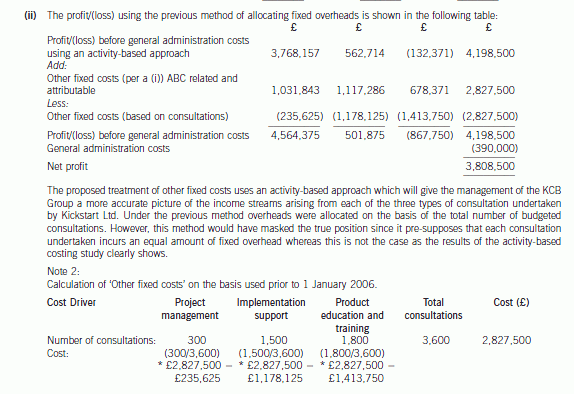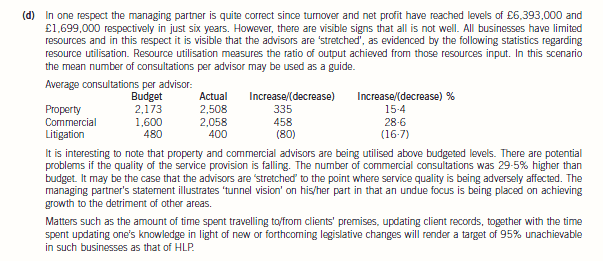在黑龙江,ACCA考试通过了你不这样做你还是不能拿到证书
发布时间:2020-01-08
近些年,随着各式各样的考试风靡全国以来,ACCA证书也是从众多资格证书里脱颖而出,逐渐映入大众的眼帘。了解它的人称之为“金饭碗”,那么有些通过所以ACCA考试全部科目的小伙伴就来咨询51题库考试学习网,成绩通过之后,证书是怎么样领取呢?是等待官方邮寄过来?还是自己去申请领证呢?这些疑问51题库考试学习网会为大家逐一解决,请大家耐心地往下看哟~
首先要恭喜你成为了ACCA准会员了,当你通过14门ACCA考试的那一科开始,你就成为准会员了。但是需要注意的是从准会员并不是会员,想从准会员到ACCA会员,这些事情你必须要做:
1.ACCA每年2月份和8月份会分别公布12月份和6月份的考试成绩。每一个通过ACCA全部考试的学员随后会收到ACCA英国总部邮寄的《ACCA会员或准会员申请手册》(一般收到时间是3月初和9月初)。每人必须根据自身的情况,如是否满足ACCA相关工作经验要求,向ACCA英国申请成为会员或准会员。
2.ACCA总部收到学员申请后,不论是申请会员和准会员,都会给学员颁发ACCA准会员证书,以确认学员成功通过所有考试。
3.对于申请会员的学员,要求如实填写会员申请手册,并总结平时记录的STR(Student Training Record)中的主要工作经历和取得的工作能力,填入申请手册(在递交会员申请表时,可以暂时不提交STR,但是,一旦ACCA英国总部通知需要提交STR,以便了解更详细的信息完成评估,学员需要再补交STR)。ACCA英国总部会对学员所填的工作记录进行评估和并与其监督人联系进行核查,确认无误后,则批准其成为ACCA会员,一般这个过程需要两个月的时间。
4.如果学员在规定的时间内没有收到以上申请手册,可以直接登陆ACCA全球官网下载。
5.对于暂时未满足工作经验的准会员,可以在条件满足的任何时间向ACCA递交ACCA会员申请表。
完成了以上所有步骤之后,你就算是成功申请ACCA会员了,只需要等待官方发送证书即可。
都说,阳光总在风雨后,当你拿到通过自己努力获得的证书时,那份喜悦肯定是独一无二的,那一刻你也明白了自己的努力是值得的;所以,为了那一天的到来,各位ACCAer们加油复习,早日完成目标~
下面小编为大家准备了 ACCA考试 的相关考题,供大家学习参考。
(ii) Using the previous overhead allocation basis (as per note 4), calculate the budgeted profit/(loss)
attributable to each type of service for the year ending 31 December 2006 and comment on the results
obtained using the previous and revised methods of overhead allocation. (5 marks)

In relation to the law of contract, distinguish between and explain the effect of:
(a) a term and a mere representation; (3 marks)
(b) express and implied terms, paying particular regard to the circumstances under which terms may be implied in contracts. (7 marks)
This question requires candidates to consider the law relating to terms in contracts. It specifically requires the candidates to distinguish between terms and mere representations and then to establish the difference between express and implied terms in contracts.
(a) As the parties to a contract will be bound to perform. any promise they have contracted to undertake, it is important to distinguish between such statements that will be considered part of the contract, i.e. terms, and those other pre-contractual statements which are not considered to be part of the contract, i.e. mere representations. The reason for distinguishing between them is that there are different legal remedies available if either statement turns out to be incorrect.
A representation is a statement that induces a contract but does not become a term of the contract. In practice it is sometimes difficult to distinguish between the two, but in attempting to do so the courts will focus on when the statement was made in relation to the eventual contract, the importance of the statement in relation to the contract and whether or not the party making the statement had specialist knowledge on which the other party relied (Oscar Chess v Williams (1957) and Dick
Bentley v Arnold Smith Motors (1965)).
(b) Express terms are statements actually made by one of the parties with the intention that they become part of the contract and
thus binding and enforceable through court action if necessary. It is this intention that distinguishes the contractual term from
the mere representation, which, although it may induce the contractual agreement, does not become a term of the contract.
Failure to comply with the former gives rise to an action for breach of contract, whilst failure to comply with the latter only gives rise to an action for misrepresentation.
Such express statements may be made by word of mouth or in writing as long as they are sufficiently clear for them to be enforceable. Thus in Scammel v Ouston (1941) Ouston had ordered a van from the claimant on the understanding that the balance of the purchase price was to be paid ‘on hire purchase terms over two years’. When Scammel failed to deliver the van Ouston sued for breach of contract without success, the court holding that the supposed terms of the contract were too
uncertain to be enforceable. There was no doubt that Ouston wanted the van on hire purchase but his difficulty was that
Scammel operated a range of hire purchase terms and the precise conditions of his proposed hire purchase agreement were
never sufficiently determined.
Implied terms, however, are not actually stated or expressly included in the contract, but are introduced into the contract by implication. In other words the exact meaning and thus the terms of the contract are inferred from its context. Implied terms can be divided into three types.
Terms implied by statute
In this instance a particular piece of legislation states that certain terms have to be taken as constituting part of an agreement, even where the contractual agreement between the parties is itself silent as to that particular provision. For example, under s.5 of the Partnership Act 1890, every member of an ordinary partnership has the implied power to bind the partnership in a contract within its usual sphere of business. That particular implied power can be removed or reduced by the partnership agreement and any such removal or reduction of authority would be effective as long as the other party was aware of it. Some implied terms, however, are completely prescriptive and cannot be removed.
Terms implied by custom or usage
An agreement may be subject to terms that are customarily found in such contracts within a particular market, trade or locality. Once again this is the case even where it is not actually specified by the parties. For example, in Hutton v Warren (1836), it was held that customary usage permitted a farm tenant to claim an allowance for seed and labour on quitting his tenancy. It should be noted, however, that custom cannot override the express terms of an agreement (Les Affreteurs Reunnis SA v Walford (1919)).
Terms implied by the courts Generally, it is a matter for the parties concerned to decide the terms of a contract, but on occasion the court will presume that the parties intended to include a term which is not expressly stated. They will do so where it is necessary to give business efficacy to the contract.
Whether a term may be implied can be decided on the basis of the officious bystander test. Imagine two parties, A and B, negotiating a contract, when a third party, C, interrupts to suggest a particular provision. A and B reply that that particular term is understood. In just such a way, the court will decide that a term should be implied into a contract.
In The Moorcock (1889), the appellants, owners of a wharf, contracted with the respondents to permit them to discharge their ship at the wharf. It was apparent to both parties that when the tide was out the ship would rest on the riverbed. When the tide was out, the ship sustained damage by settling on a ridge. It was held that there was an implied warranty in the contract that the place of anchorage should be safe for the ship. As a consequence, the ship owner was entitled to damages for breach of that term.
Alternatively the courts will imply certain terms into unspecific contracts where the parties have not reduced the general agreement into specific details. Thus in contracts of employment the courts have asserted the existence of implied terms to impose duties on both employers and employees, although such implied terms can be overridden by express contractual provision to the contrary.
(d) The managing partner of HLP stated at a recent partners’ meeting that ‘every advisor should aim to ensure that
95% of all hours he/she works are billed to clients. This will ensure that we remain both profitable and
competitive’.
Required:
Discuss the statement of the managing partner, drawing attention to any concerns that you may have
regarding the statement. (6 marks)

(b) Using models where appropriate, what are likely to be the critical success factors (CSFs) as the business
grows and develops? (10 marks)
(b) David even at this early stage needs to identify the critical success factors and related performance indicators that will show
that the concept is turning into a business reality. Many of the success factors will be linked to customer needs and
expectations and therefore where David’s business must excel in order to outperform. the competition. As an innovator one of
the critical success factors will be the time taken to develop and launch the new vase. Being first-to-market will be critical for
success. His ability to generate sales from demanding corporate customers will be a real indicator of that success. David will
need to ensure that he has adequate patent protection for the product and recognise that it will have a product life cycle.
There look to be a number of alternative markets and the ability to customise the product may be a CSF. Greiner indicates
the different stages a growing business goes through and the different problems associated with each stage. One of David’s
key problems will be to decide what type of business he wants to be. From the scenario it looks as if he is aiming to carry
out most of the functions himself and there is a need to decide what he does and what he gets others to do for him. Indeed
the skills he has may be as an innovator rather than as someone who carries out manufacture, distribution, etc. Gift Designs
may develop most quickly as a firm that creates new products and then licences them to larger firms with the skills to
penetrate the many market opportunities that are present. It is important for David to recognise that turning the product
concept into a viable and growing business may result in a business and a business model very different to what he
anticipated. Gift Designs needs to have the flexibility and agility to take advantage of the opportunities that will emerge over
time.
声明:本文内容由互联网用户自发贡献自行上传,本网站不拥有所有权,未作人工编辑处理,也不承担相关法律责任。如果您发现有涉嫌版权的内容,欢迎发送邮件至:contact@51tk.com 进行举报,并提供相关证据,工作人员会在5个工作日内联系你,一经查实,本站将立刻删除涉嫌侵权内容。
- 2020-09-04
- 2020-01-08
- 2020-01-08
- 2019-07-20
- 2020-01-08
- 2020-02-29
- 2020-01-08
- 2021-08-12
- 2020-01-08
- 2020-01-08
- 2020-02-29
- 2019-07-20
- 2019-07-20
- 2020-09-04
- 2020-01-08
- 2020-01-08
- 2020-01-08
- 2020-02-29
- 2020-01-08
- 2020-01-08
- 2020-01-08
- 2020-01-08
- 2019-07-20
- 2019-07-20
- 2020-02-29
- 2020-09-04
- 2020-01-08
- 2020-02-29
- 2019-07-20
- 2019-07-20